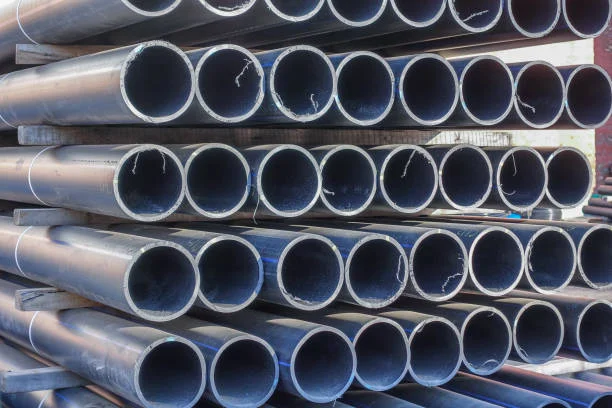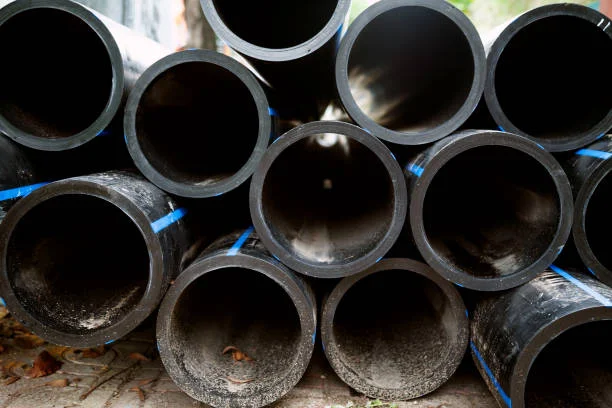Understanding the Versatility of High-Density Polyethylene Pipe
High-Density Polyethylene Pipe
In the realm of modern infrastructure, the choice of piping material is of paramount importance. High-density polyethylene (HDPE) pipe has emerged as a versatile solution that caters to a wide array of applications. This article explores the various facets of HDPE pipes, shedding light on their significance in the construction and industrial sectors.

The Composition of HDPE Pipes
What is a High-Density Polyethylene Pipe?
High-density polyethylene pipe is a thermoplastic polymer pipe made from petroleum-based materials. Known for its high strength-to-density ratio, the top HDPE pipes are widely recognized for their durability and resilience.
Advantages of High-Density Polyethylene Pipe
Durability and Longevity
One of the most striking features of a high-density polyethylene pipe is its exceptional resistance to abrasion and wear. This property ensures that the pipe can withstand harsh environmental conditions and the test of time.
Versatility in Applications
The adaptability of a high-density polyethylene pipe is unparalleled. It finds applications in various sectors, ranging from water supply systems to drainage and even in industries handling corrosive substances.
Environmental Sustainability
HDPE pipes are considered environmentally friendly due to their recyclability. By opting for a high-density polyethylene pipe, you’re contributing to a more sustainable and eco-conscious approach to infrastructure.
Industrial Applications of High-Density Polyethylene Pipe
Water Supply Systems
In water supply systems, a high-density polyethylene pipe is the preferred choice due to its non-toxicity and resistance to corrosion. This ensures the delivery of clean and safe drinking water.
Mining Industry
In the mining sector, where harsh and abrasive materials are prevalent, the durability of a high-density polyethylene pipe is invaluable. It stands strong against the challenges posed by mining operations.
Installation and Maintenance
Ease of Installation
Installing a high-density polyethylene pipe is a streamlined process. Its lightweight nature simplifies transportation and handling, making it a cost-effective choice for infrastructure projects.
Low Maintenance Requirements
Once in place, a high-density polyethylene pipe requires minimal maintenance. Its resistance to corrosion and wear means fewer replacements and repairs, resulting in long-term cost savings.
Conclusion Of High-Density Polyethylene Pipe
In conclusion, the versatility and durability of a high-density polyethylene pipe make it a standout choice for various applications in the construction and industrial sectors. Whether you’re exploring options with ‘HDPE Pipe suppliers or considering the reliability of ‘HDPE Pipe manufacturers,’ our commitment to providing top-notch solutions remains unwavering. Join us in shaping the future of construction and industry with the robust qualities of HDPE pipe’s adaptability, coupled with its eco-friendly attributes, which aligns with the growing need for sustainable infrastructure solutions. Embracing HDPE pipes is not just a practical choice but a forward-thinking step towards a more resilient and environmentally conscious future.

In summary, the versatility and resilience of high-density polyethylene (HDPE) pipes make them indispensable in modern infrastructure projects. From providing clean drinking water to withstanding harsh industrial environments, HDPE pipes offer unmatched durability and environmental sustainability. Whether you’re embarking on a water supply system upgrade or tackling industrial applications, choosing HDPE pipes ensures reliability and longevity while contributing to a greener future. Explore the possibilities with HDPE pipe suppliers and manufacturers, and embrace a forward-thinking approach to construction and industry. With HDPE pipes, you’re not just investing in infrastructure; you’re paving the way for a more resilient and sustainable tomorrow.
Frequently Asked Questions About High-Density Polyethylene Pipe
Q1: What is a High-Density Polyethylene (HDPE) pipe, and what sets it apart from other types of pipes?
A: HDPE pipe is a type of plastic pipe made from high-density polyethylene resin. It distinguishes itself with its exceptional durability, resistance to corrosion, and versatility. Unlike traditional metal or concrete pipes, HDPE pipes are lightweight and flexible, making them easier to handle and install.
Q2: What are the common applications for HDPE pipes?
A: HDPE pipes have a wide range of applications, including water supply, sewage systems, gas distribution, irrigation, industrial processes, and more. Their versatility and resistance to chemicals make them suitable for various industries.
Q3: Are HDPE pipes safe for drinking water and potable water systems?
A: Yes, HDPE pipes are approved for use in drinking water and potable water systems. They meet stringent safety and quality standards to ensure the delivery of clean and safe water.
Q4: How long can HDPE pipes last, and do they require frequent maintenance?
A: HDPE pipes have a long service life, often exceeding 50 years when properly installed and maintained. They require minimal maintenance because they are resistant to corrosion and do not degrade over time.
Q5: Can HDPE pipes be used in extreme temperature conditions?
A: HDPE pipes have a wide temperature tolerance, making them suitable for both hot and cold water applications. However, it’s essential to consider the specific material grade and consult the manufacturer’s specifications for temperature limits.

